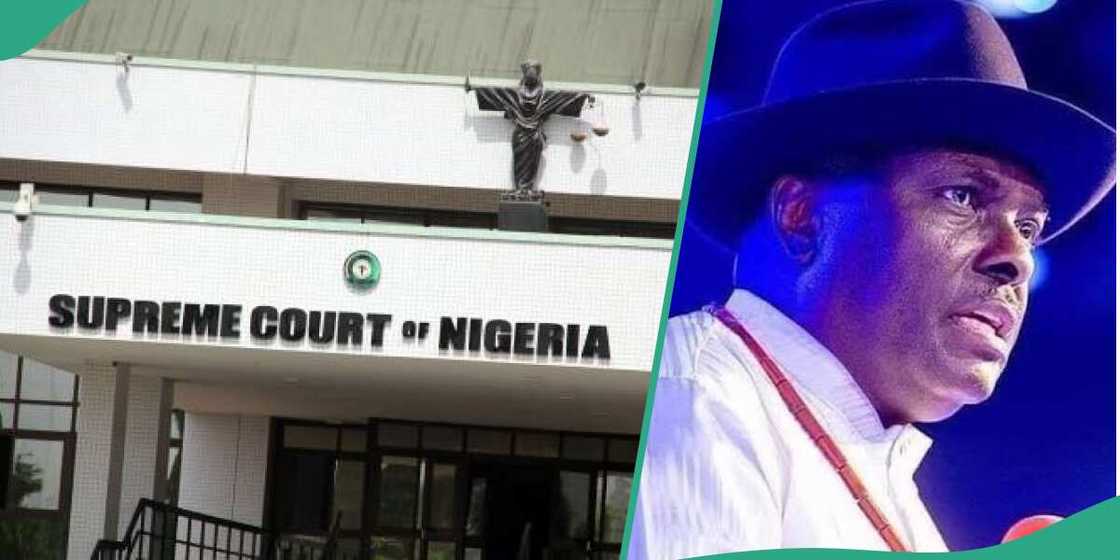LG Autonomy: "There Are Only 2 Tiers of Govt", Ex-Gov Ibori Picks 5 Dangers in Supreme Court Ruling
- Former Delta state governor James Ibori has identified five errors in the Supreme Court judgment granting financial autonomy to local governments in Nigeria
- The former governor posited that the apex court verdict contravened the principle of federalism as stated in Section 162(3) of the 1999 Constitution
- According to the Ibori, there are only two tiers of government, which are federal and state government, while the local government is expected to operate under the state
Asaba, Delta - James Ibori, the former governor of Delta state, has said the Supreme Court's judgment granting full autonomy to local government operations in Nigeria was against the 1999 constitution as amended.
Ibori maintained that the Supreme Court's ruling has dealt a significant blow to the principle of federalism in Nigeria, as outlined in Section 162(3) of the 1999 Constitution. According to Ibori, this section states that funds in the Federation Account should be distributed among federal, state, and local governments in a manner prescribed by the National Assembly.

Source: Twitter
The former governor added that in Section 6, each state should maintain a "State Joint Local Government Account" to receive allocations from the Federation Account and the state government. The Supreme Court's ruling undermines true federalism and allows the federal government to interfere with local government administration, which is not permitted in a federal system.
Only two tiers of government exist - Ibori
He maintained that there are only two tiers of government: federal and state. The federal government's interference with local governments violates the Constitution. While he disagrees with altering allocations to Joint LG Accounts at the state level, he believes the Supreme Court's ruling goes too far and contradicts the clear provisions of Section 162.
He then highlighted five key points as the judgment's implications: a wrong interpretation of the Constitution, a potential shift in the balance of power, and the erosion of states' autonomy.

Read also
LG autonomy: Falana interprets Supreme Court judgement, sends message to Nigerian governors
The two others are the possibility of becoming political leverage for the federal government to impact the financial independence of state and local governments. The last defect he pointed out in the judgment set a precedent for the federal government to continue interfering in what was traditionally set for state governments.
See his statement here:
El-Rufai reacts to Supreme Court judgment
Legit.ng earlier reported that the former governor of Kaduna state, Nasir El-Rufai, made a cryptic comment on the Supreme Court judgment granting autonomy to local governments in Nigeria.
El-Rufai quoted a tweet from the presidency that summarised the apex court's judgment with a terse comment saying it is God who gives and takes.
The former governor's comment comes amid his ongoing political battle with Uba Sani, his successor in Kaduna state.
PAY ATTENTION: Donate to Legit Charity on Patreon. Your support matters!
Source: Legit.ng



